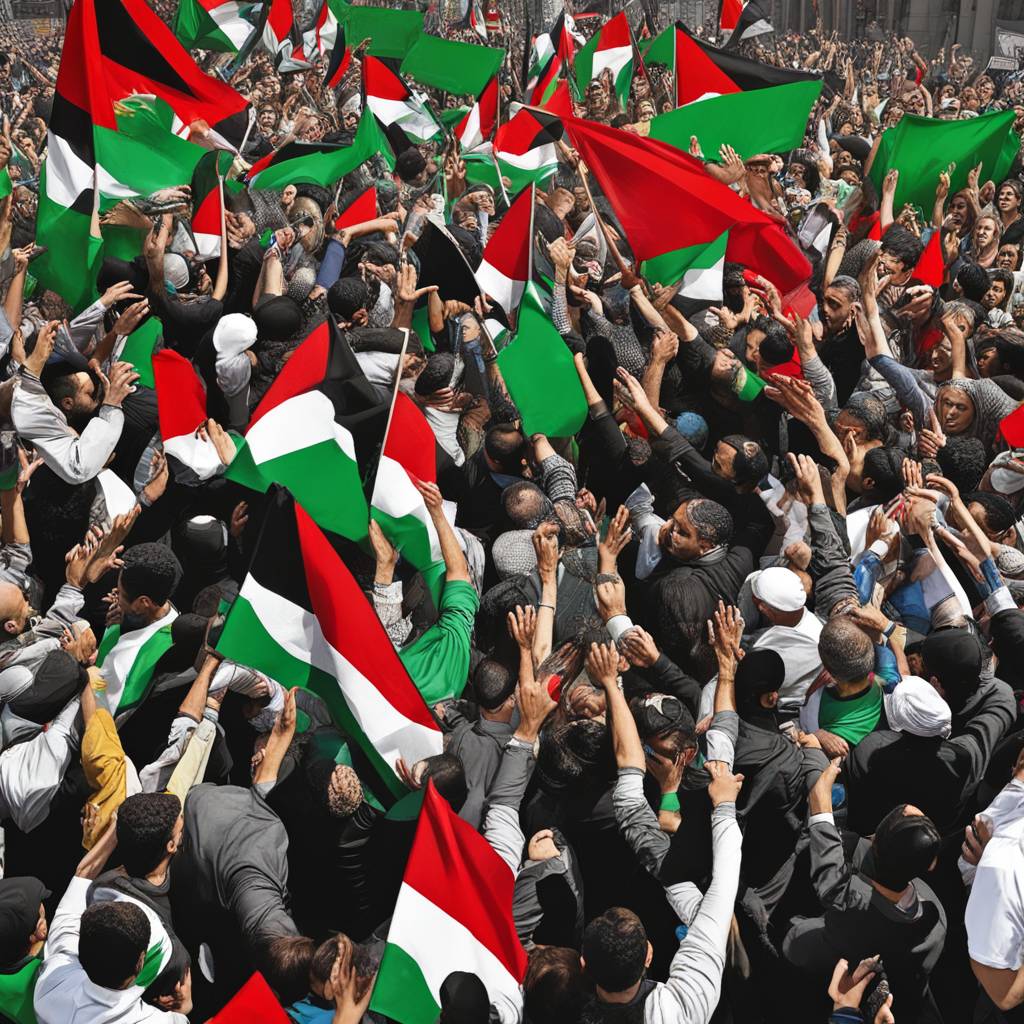Three pro-Palestinian protesters were released without bail in New York City after disrupting an Easter Vigil Mass at St. Patrick’s Cathedral by unfurling a banner and shouting “Free Palestine!” The protesters, identified as Gregory Schwedock, John Rozendaal, and Matthew Menzies, were charged with disruption of a religious service. Despite being taken into custody, they have since been released. The incident, caught on video, showed the protesters approaching the altar and unfurling a banner near the altar where Cardinal Timothy Dolan was leading the Easter Vigil service.
The protesters were affiliated with the climate activist group Extinction Rebellion, who demanded action against genocide and ecocide. They claimed that war, occupation, and industrial pollution are destroying the earth’s capacity to sustain life, citing the situation in Gaza as an example of this destruction. The group called on faith leaders to take immediate and vocal action against genocide and ecocide. Despite their disruptive protest, many in attendance at the Easter Vigil service did not acknowledge the outburst, and security quickly removed the protesters from the area.
The U.S. Conference of Catholic Bishops had issued a call for prayer for peace in the Middle East and an end to the Israel-Hamas war before the start of Holy Week. St. Patrick’s Cathedral did not immediately respond to a request for comment on the incident. Schwedock, one of the protesters arrested, had a history of disruptive activism, having been taken into custody last September for disrupting a U.S. Open tennis semifinal match. The protesters’ actions at St. Patrick’s Cathedral were condemned by many, with some questioning the appropriateness of their protest during a religious service.
The incident at St. Patrick’s Cathedral was part of a broader trend of pro-Palestinian protests taking place in various locations. In addition to disrupting the Easter Vigil service in New York City, pro-Palestinian protesters also disrupted a Berkeley City Council meeting and a vote on Holocaust remembrance. These protests reflect the ongoing tensions in the Middle East and issues related to the Israeli-Palestinian conflict. Some activists believe that actions such as these protests are necessary to draw attention to what they see as ongoing injustices and violence in the region.
The protesters’ message at St. Patrick’s Cathedral highlighted the links between issues of climate change, environmental degradation, and conflicts in the Middle East. They called for individual and institutional action against genocide and ecocide, framing these issues as interconnected and urgent. While their actions were disruptive and controversial, they underscored the importance of raising awareness and advocating for change on critical global issues such as environmental sustainability, human rights, and conflict resolution. The debate surrounding the appropriateness and effectiveness of such protests continues, as activists seek to bring attention to their causes through direct action and public demonstrations.
In the aftermath of the incident, discussions have emerged about the boundaries of protest and advocacy, especially within religious spaces. While the right to protest is protected by law, questions arise about the impact and appropriateness of disrupting religious services and events to draw attention to political or social causes. Some argue that such protests, while disruptive, are a necessary means of challenging injustices and prompting change. Others suggest that there are more effective and respectful ways to advocate for causes without infringing on the rights and beliefs of others. Ultimately, the incident at St. Patrick’s Cathedral serves as a reminder of the complex intersections between activism, religion, and social change, and the ongoing need for dialogue and understanding in navigating these issues.


